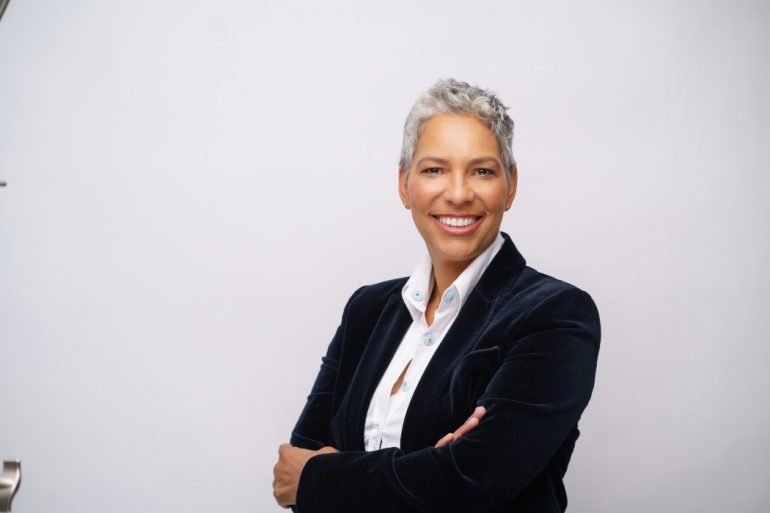Future Fertility has raised nearly $7.6 million CAD ($6 million USD) in Series A financing to fuel the growth of its artificial intelligence (AI)-enabled in vitro fertilization (IVF) solutions.
Future Fertility’s CEO claims the startup is “the first company to offer non-invasive egg assessment for patients.”
The Toronto-based healthtech company, which aims to bring AI-enabled and non-invasive diagnostic solutions to the IVF journey, is part of a growing wave of fertility-focused tech startups.
Future Fertility CEO Diana Olusanmi told BetaKit that many of the other firms operating in the fertility space have focused on the embryo, while Future Fertility is “the first company to offer non-invasive egg assessment for patients through their fertility clinics.”
The startup’s all-equity Series A round, its first institutional financing to date, was led by Amsterdam-based M Ventures, the corporate venture capital arm of German science and technology company Merck KGaA, and supported by Toronto-based Whitecap Venture Partners, which recently closed its fifth fund, securing $140 million CAD.
IVF is a method of assisted reproduction by which an egg is combined with sperm outside the body in a laboratory dish. Co-founded in 2017 by Dr. Dan Nayot, a reproductive endocrinologist who serves as Future Fertility’s medical director, the startup’s goal is to leverage AI to improve fertility care, IVF outcomes, and lower the costs associated with them.
According to the startup, presently, “there is no standardized visual assessment tool used by embryologists to evaluate the reproductive potential of a mature human egg,” which Future Fertility refers to as “the most step-limiting variable in a successful pregnancy.”
“The current standard of care in reproductive medicine requires a visual evaluation of all important variables including sperm, egg, embryos, and endometrium,” said Olusanmi. “However, to date, there has been no validated visual scoring system for eggs, which is important to adapt medical protocol and move the needle [on the] success rate.”
RELATED: Whitecap Venture Partners closes $140 million Fund V to invest across Canada
The startup’s first, flagship product is an egg assessment software offering called Violet that aims to address this issue by providing insights related to egg quality. According to the company, Violet “has the potential to improve the success rates of IVF, egg freezing, and egg donation cycles.”
According to Nayot, “creating a validated egg scoring system has been a major challenge in the field and has now been made possible by AI.”
IVF treatments are expensive: they cost about $10,000 to $15,000 per cycle, on average, and can rise to around $20,000 when accounting for drugs, other tests, and consultations. CBC News recently reported that only four Canadian provinces offer financial assistance for IVF, and they do so on a limited basis.
According to Future Fertility, IVF is also “fraught with low success rates,” as only 30 percent of egg retrievals across all age groups lead to live births. The startup aims to help address this issue by applying AI to the fertility process.
RELATED: Eli raises $1.9 million CAD in seed funding to develop at-home hormone monitoring tech
Future Fertility claims its Violet software product uses AI to detect features of a human egg “that are invisible to the eye,” enabling it to predict the likelihood of fertilization and embryo development more accurately than current methods. Violet is already being used by a select group of IVF clinics.
According to Whitecap Partner Shayn Diamond, Future Fertility’s products “have the potential to address a significant unmet need” by making IVF “more efficient and accessible.”
The Canadian fertility tech space features players like Montréal-based Eli, which scored $1.9 million CAD in seed funding last year to fuel its saliva-based daily hormone tracking solution. In its quest to leverage AI to improve IVF success, Future Fertility isn’t alone, as startups like Stockholm’s Mojo and San Francisco-based Life Whisperer and Alife have taken a similar approach.
Therese Liechtenstein, principal at M Ventures, called Future Fertility’s solution unique in the AI fertility space.
Future Fertility plans to use its Series A capital to accelerate its research and development (R&D) efforts as it looks to improve Violet and roll out new AI-enabled, non-invasive, IVF-related assessment products. The startup currently has 12 employees, and aims to double its headcount by the end of the year.
Feature image of CEO Diana Olusanmi courtesy of Future Fertility


